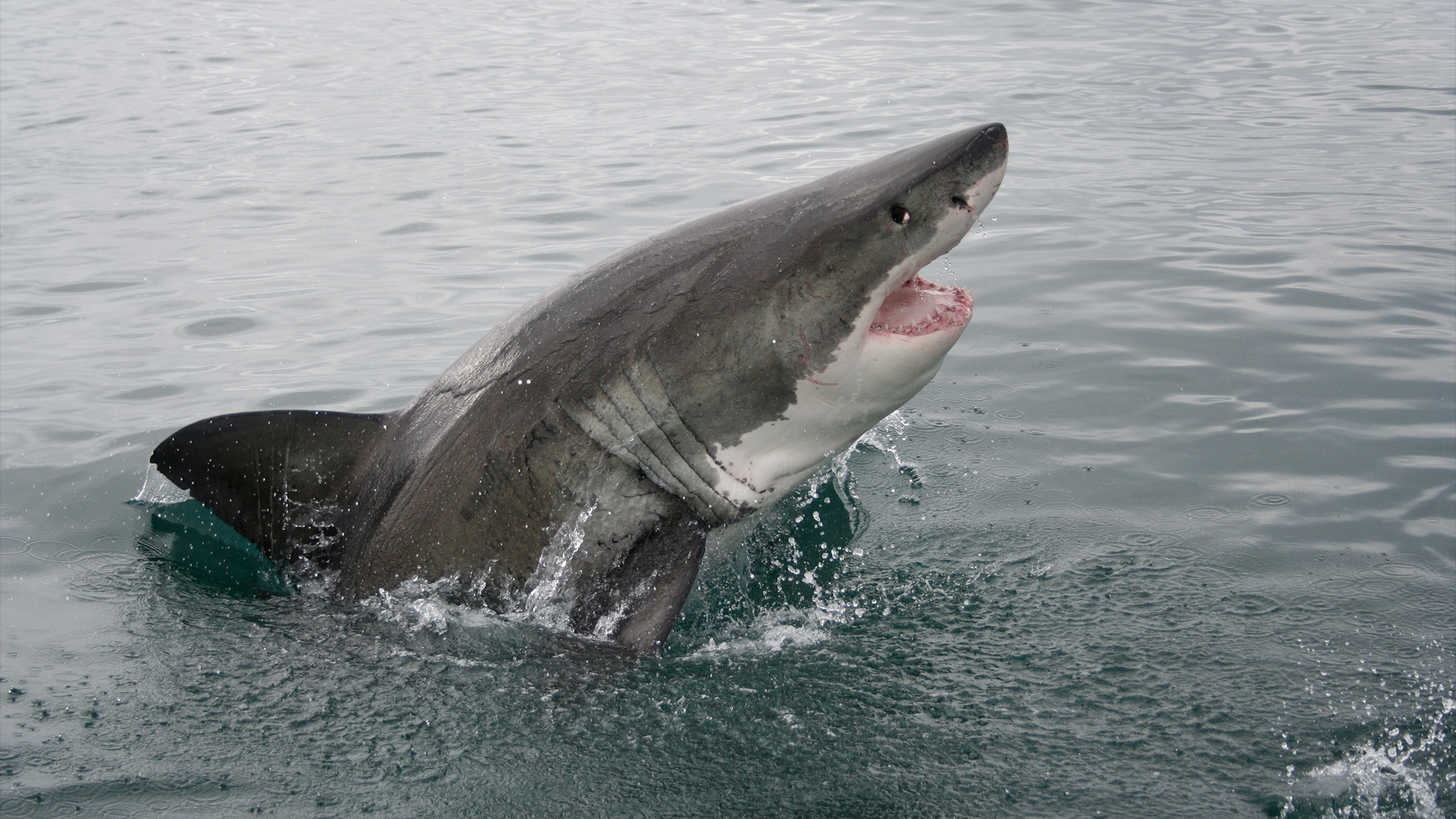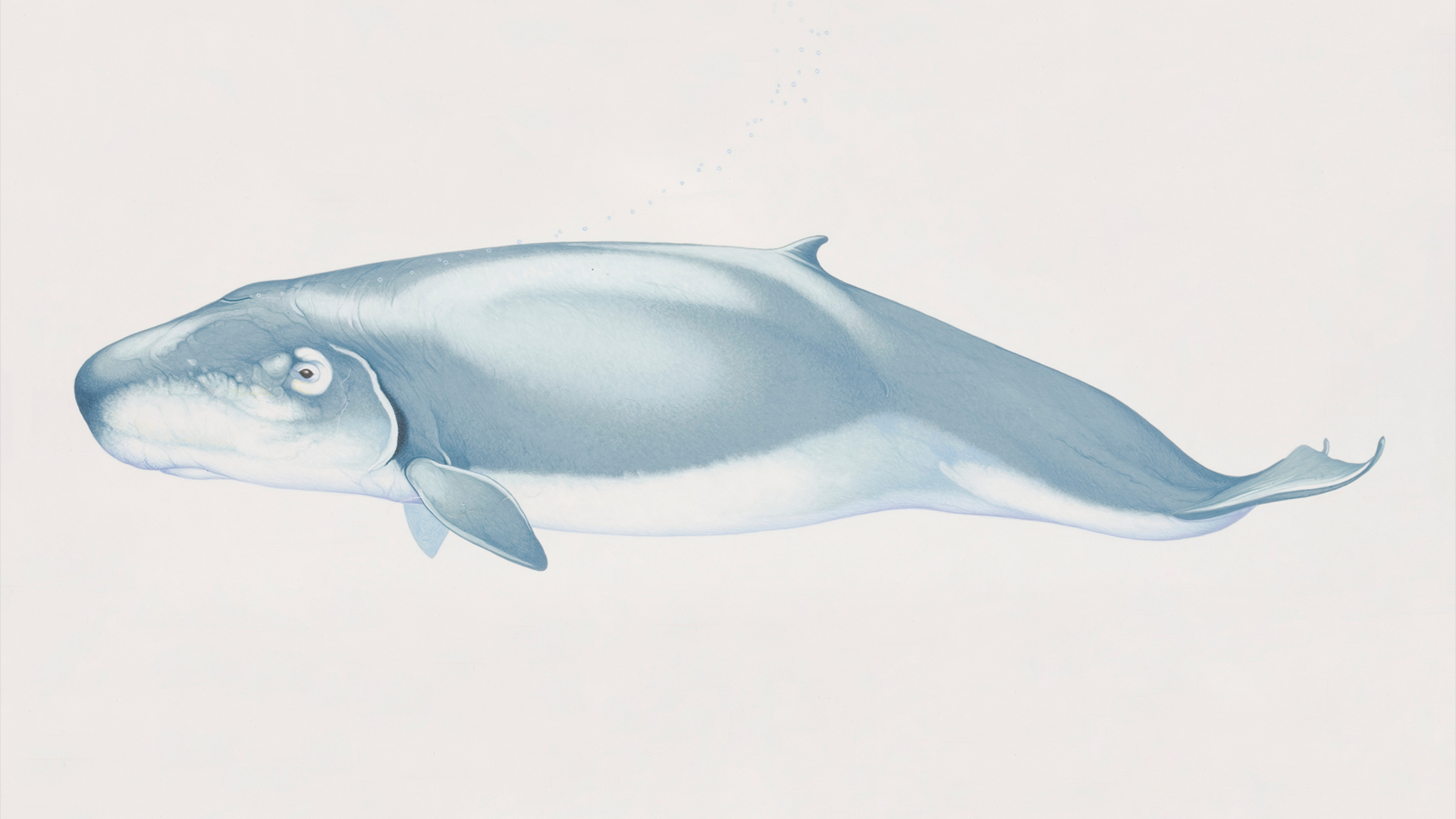
A huge shark bit the head off a stranded pygmy sperm whale in New Zealand as a person standing in waist-high water attempted to get the whale back out to sea. The shark, likely a great white (Carcharodon carcharias), returned 30 seconds later to eat the rest of the whale, witnesses said.
The incident took place in northern Hawke's Bay on the Māhia Peninsula on Sunday (Feb. 25) after a pygmy sperm whale (Kogia breviceps) and her calf got stranded on the beach, Hawke's Bay Today reported.
Chad Prentice, Māhia sole charge police officer, told the newspaper that a witness said the shark was more than 16 feet (5 meters) long and killed the whale instantly.
Related: In rare attack, great white shark decapitates diver in Mexico. But why?
"I am told when the shark hit the whale the first time … it came out of the water and took its whole head off. There are not many sharks that can do that." Prentice said.
The slain whale was 10 feet (3 m) long, according to witnesses. As the rescuer fled for shore unharmed, the shark took away its prey.
"The water was red and about 30 seconds later the shark came back and hit the whole thing and took it out to sea — there is not even an ounce of remains left," Prentice said.

The sperm whale's calf, still stranded after the attack and left without a mother, was later euthanized and will be studied for further insights into what might have caused the stranding, according to Hawke’s Bay Today.
New Zealand is well known for marine mammal strandings. Usually, just one or two animals get stuck in shallow waters, but sometimes big groups strand simultaneously. The largest mass stranding in the country's history occurred in 1918 and involved around 1,000 pilot whales, according to the New Zealand Department of Conservation (DOC).
Many marine mammals are sick when they strand, but there may be multiple factors behind any given event, and researchers still have a lot to learn about the phenomenon.
The DOC warned of the potential for increased shark activity around the Māhia Peninsula in January after about 45 false killer whales and bottlenose dolphins were stranded and euthanized.
"Several shark species feed on whale[s] and dolphins, including their carcasses, and can be attracted to the site of whale strandings. These include sevengill sharks, blue sharks, tiger sharks, and great white sharks," Clinton Duffy, the DOC marine technical advisor, said in a statement at the time.
Daren Grover, the general manager of New Zealand marine mammal charity Project Jonah, told Hawke's Bay Today it's normal for sharks to prey on sick animals and said they are "opportunistic predators."







